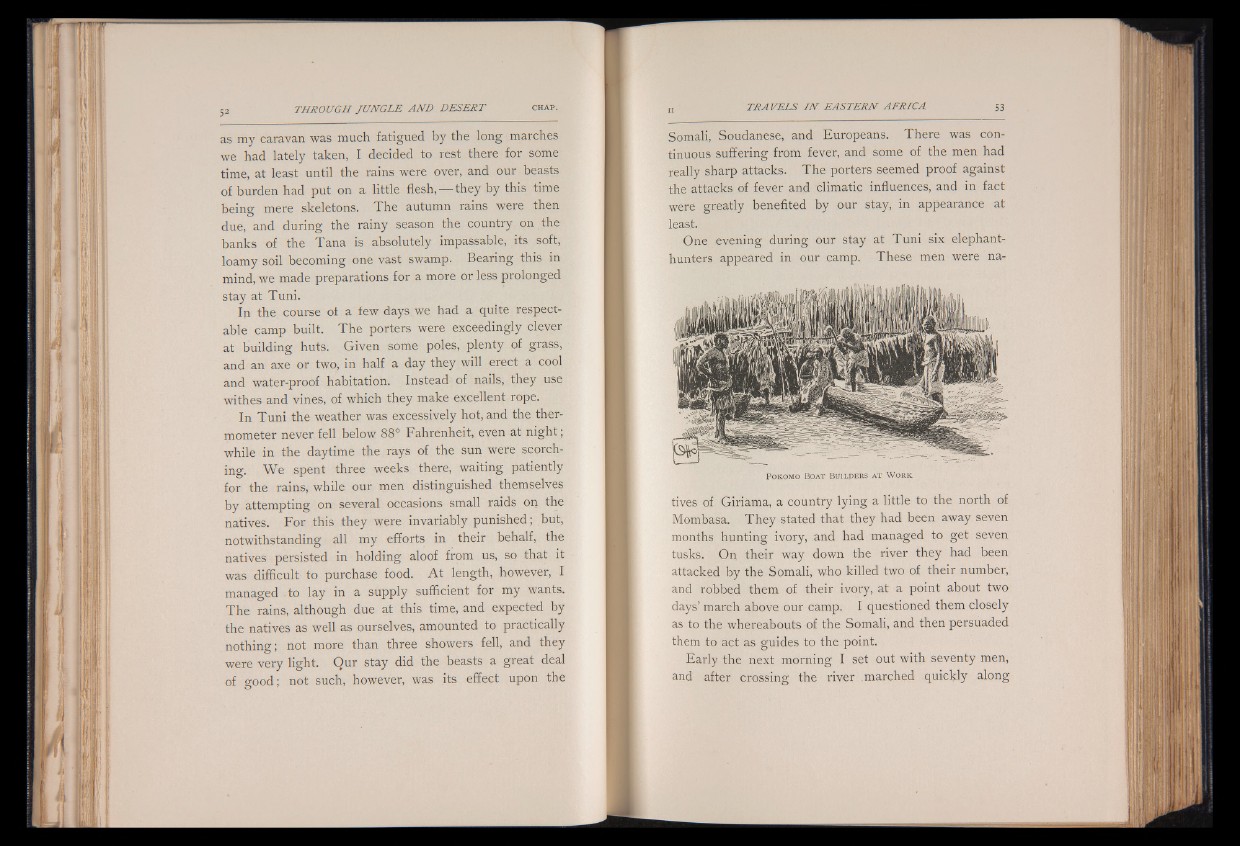
as my caravan was much fatigued by the long marches
we had lately taken, I decided to rest there for some
time, at least until the rains were over, and our beasts
of burden had put on a little flesh, — they by this time
being mere skeletons. The autumn rains were then
due, and during the rainy season the country on the
banks of the Tana is absolutely impassable, its soft,
loamy soil becoming one vast swamp. Bearing this in
mind, we made preparations for a more or less prolonged
stay at Tuni.
In the course of a few days we had a quite respectable
camp built. The porters were exceedingly clever
at building huts. Given some poles, plenty of grass,
and an axe or two, in half a day they will erect a cool
and water-proof habitation. Instead of nails, they use
withes and vines, of which they make excellent rope.
In Tuni the weather was excessively hot, and the thermometer
never fell below 88° Fahrenheit, even at night;
while in the daytime the rays of the sun were scorching.
We spent three weeks there, waiting patiently
for the rains, while our men distinguished themselves
by attempting on several occasions small raids on the
natives. For this they were invariably punished; but,
notwithstanding all my efforts in their behalf, the
natives persisted in holding aloof from us, so that it
was difficult to purchase food. A t length, however, I
managed to lay in a supply sufficient for my wants.
The rains, although due at this time, and expected by
the natives as well as ourselves, amounted to practically
nothing; not more than three showers fell, and they
were very light. Qur stay did the beasts a great deal
of good; not such, however, was its effect upon the
Somali, Soudanese, and Europeans. There was continuous
suffering from fever, and some of the men had
really sharp attacks. The porters seemed proof against
the attacks of fever and climatic influences, and in fact
were greatly benefited by our stay, in appearance at
least.
One evening during our stay at Tuni six elephant-
hunters appeared in our camp. These men were na-
P o k o m o B o a t B u i l d e r s a t W o r k
tives of Giriama, a country lying a little to the north of
Mombasa. They stated that they had been away seven
months hunting ivory, and had managed to get seven
tusks. On their way down the river they had been
attacked by the Somali, who killed two of their number,
and robbed them of their ivory, at a point about two
days’ march above our camp. I questioned them closely
as to the whereabouts of the Somali, and then persuaded
them to act as guides to the point.
Early the next morning I set out with seventy men,
and after crossing the river marched quickly along